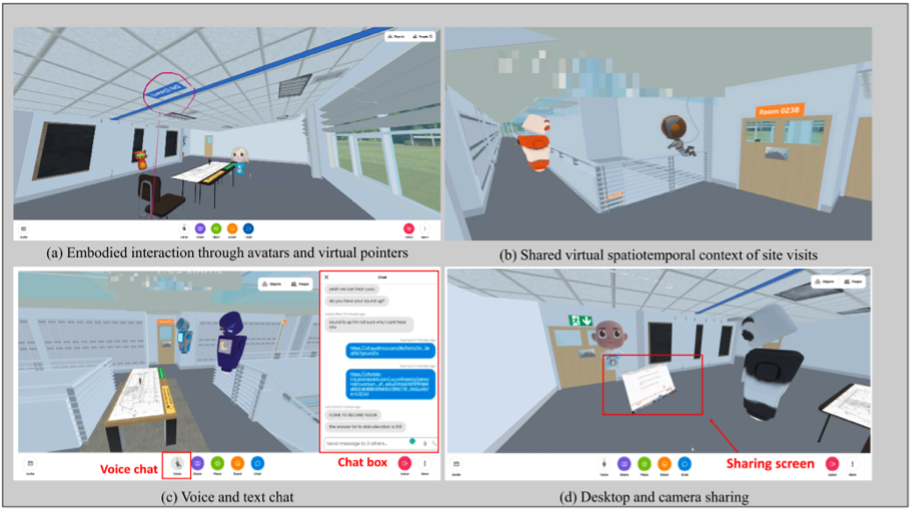Research Topic 8: Metaverse as a Novel Educational Tool in the Field of Construction
Research Description

This research aims to investigate the use of the metaverse as a novel educational tool in the field of construction. Specifically, it focuses on replicating and enhancing the educational benefits of traditional construction site visits by creating a collaborative virtual environment within the metaverse. This virtual environment will enable students to engage in immersive, interactive, and educational construction site experiences, overcoming geographical boundaries and logistical constraints. By harnessing the metaverse’s capabilities, this research seeks to provide a transformative learning experience for students in construction-related disciplines, offering them a unique opportunity to explore and understand construction concepts in a virtual yet realistic setting.
REU Research Plan:
During the REU program, students will actively participate in the development and evaluation of this metaverse-based educational tool. They will contribute to the technical development of the virtual environment, assess its feasibility for conducting virtual site visits, and analyze its educational impact on students’ learning outcomes. Through this hands-on experience, students will gain valuable insights into the potential of emerging technologies in education and construction, enhancing their coding skills and applying basic statistics to measure the effectiveness of this innovative approach.
Keywords: Metaverse, virtual construction site visits, immersive learning, construction education.
Required Skills: Coding skills and basic knowledge of statistics.
Undergraduate Degrees: Computer Science, Visualization, Civil Engineering, Architecture, Building Construction, Construction Science/Management.
Faculty Advisor: Dr. Gilles Albeaino
